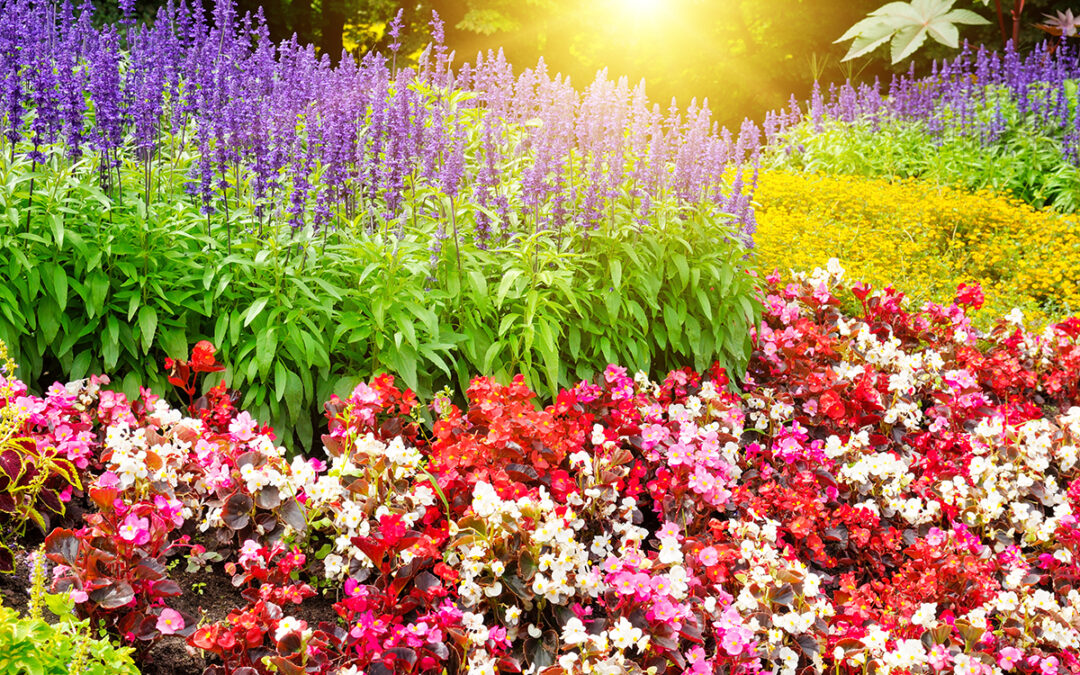Magnificent flowerbeds are the heart of a garden. Perennials, ornamental grasses, roses, flowering shrubs, flower bulbs and summer flowers create a colorful variety and give every garden an unmistakable character. With the right care you can enjoy a very long time on a variety of flowers.
Care of beds
Mulching
The soil-covering mulch layer has many advantages. While the bottom layer is slowly decomposed by microorganisms and thus the soil is enriched with humus, the top layer acts as a protection against weather influences such as heat, cold or drought. Mulching is ideal for shrubs, ferns and grasses. These are plants whose natural growth takes place very close to the edge of the forest and are used to this soil cover. On the other hand, roses, bedding bushes and even summer-flowering soils are familiar, and mulching should be avoided.
IMPORTANT TIP
The decomposition process in the mulch layer leads to a shortage of nutrients in the soil. This can lead to deficiency symptoms in the plants. Therefore, before mulching, the entire area should be fertilized with horn chips. Alternatively, a cover made of composted bark or chopped wood would offer, since both act less nitrogen consuming.
Fertilize
A mineral fertilizer quickly and effectively removes acute nutrient deficiencies of all bedding flowers as it contains all the essential nutrients. However, its nitrogen content quickly shifts to deeper soil layers and can sometimes pollute the groundwater.
Horn chips are – as already mentioned in mulching – a natural way to provide the plants in beds with nutrients. This fertilizer is obtained from shredded horn of slaughter cattle. Normally horns and hooves of cattle are ground for horny fertilizers. Horn fertilizer does not affect the pH of the soil and is very nitrogenous due to its organic origin. Horn semolina works faster than horn chips. For this reason, Horngrieß is ideal for fertilizing in spring, with horn shavings – due to the longer decomposition time – better suited for autumn.
Watering
Regular and adequate watering are mandatory! Especially flowers tend to fast wilting of flowers and leaves in lack of water. The ideal watering time is in the morning. The soil is still damp from the dew and can absorb the water better. In addition, the bedding plants suffer no “cold shock” after the nightly cooling.
IMPORTANT TIP
Times of watering should be long, because the water should penetrate through the entire rooting topsoil. This contributes to a deep rooting of the plant, because roots follow the moisture. If the water seeps only a few centimeters deep during casting, the roots concentrate on this upper soil layer, the plants are more susceptible to drying up and withering.
Automatic irrigation systems make it quick and easy to provide optimum care for the plants in your bed. Once laid and adjusted to your needs, beds, hedges, beds, … the entire garden to be self-sufficient.
With an automatic irrigation system your garden and you benefit from many advantages:
- Time savings
- water savings
- Healthy plants
- More yield
- Better quality
- More independence
Systems of Raintime
Raintime is an Austrian master company and we offer turnkey complete implementations including control, material, configuration / adjustment, installation and commissioning. Our trained team will also assist you in self-irrigation and technical issues if you are considering installing a sprinkler system yourself. Contact us now!
Online Shop
Our Online Shop offers you a wide choice for all irrigation requirements, expertly compiled irrigation sets and also smart solutions via Wi-Fi and App.
Raintime ONLINE Shop irrigation technology
– Find the perfect irrigation system –


